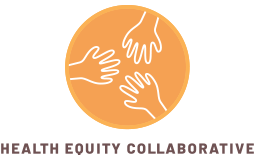29 Mar Voices for Change: HEC Women Leading the Fight for Health Equity
In celebration of Women’s History Month, the Health Equity Collaborative is pleased to highlight incredible women in our community who are working each day to address health inequities.
While women have experienced substantial improvements in health in recent decades, disparities in access and quality of health and healthcare persist. The impacts cross racial, ethnic, and socio-economic lines.
Here are just a few examples of health challenges women are facing every day in the United States:
- Black women are more likely than any other racial or ethnic group to suffer from cardiovascular disease, hypertension, stroke, lupus, and several forms of cancer.
- Latinas are less likely than other Americans to have insurance and to receive preventative medical care.
- Native American women have the lowest life expectancy rate in the United States.
- Asian Americans account for 5% of the total population in the United States but account for over half of the chronic Hepatitis B cases in America. It is estimated that 1 in 12 Asian Americans are living with Hepatitis B.
Addressing such challenges requires more education, resources, and leadership from individuals and organizations who can support ongoing change efforts. The Health Equity Collaborative is honored to have so many leaders in our community who are working each day to address these issues and create a healthcare system that works for everyone.
We asked some of them why their work matters, and why health equity matters, and hope you find their answers as inspiring as we did. To learn more about these individuals and the work of their organizations, please follow the links below.

Rev. Kimberly Williams
Executive Director
Choose Healthy Life (CHL)
As an African American Faith Leader and the Executive Director of Choose Healthy Life, I believe that advancing health equity for women is crucial because it enhances the well-being of our families and communities. Women are the breath and life to many of their families and communities, and to fulfill the callings and the assignments of their lives, they must be whole for the people around them to be whole. Therefore, investing in women’s health equity
strengthens societal resilience and economic growth, creating a more equitable future for all.

Amy Hinojosa
National President and CEO
MANA, A National Latina Organization
This year, MANA is excited to celebrate our 50th anniversary. We remain as committed as ever to improving the lives of Latinas across the country through our ongoing training and advocacy efforts. Lowering costs and improving access to culturally appropriate care are high priorities for our community.

Angela Dingle
President & CEO
Women Impacting Public Policy (WIPP)
Healthcare that is both affordable and accessible is key to achieving health equity for women. Women Impacting Public Policy (WIPP) believes health equity is inclusive of more research on women’s health issues, expanding access to affordable care and prescriptions, as well as ensuring that women in underserved communities can find a doctor or a pharmacy. As a women’s business organization, we also think it’s important from a policy perspective to advance legislation that helps women business owners offer affordable healthcare plans to employees. One of the policies we advocate for is to require pharmacy benefits managers (PBMs) to be paid based on the value of services they provide versus the price of the medicine. Effective PBM reform is crucial to helping women-owned businesses provide competitive benefits to employees, which supports talent retention and recruitment. You can read more about WIPP’s policy priorities and the work we do in the 2024 WIPP Economic Blueprint.

Robin Strongin
Senior Director, Health Policy
National Consumers League (NCL)
Quick. Name 3 famous female scientists, other than Marie Curie. Do you know what percentage of venture capital went to women-led start ups innovating in health and medicine? How about NIH funding that went to women lead research teams? When women were allowed in clinical trials?
That’s why we at the National Consumers League fight hard every day for, and with women. NCL was actually founded in 1899 by women. We have an important legacy to carry on and we take it very seriously.

Ifeoma C. Udoh, PhD
Executive VP: Policy, Advocacy, and Science
Black Women’s Health Imperative (BWHI)
As a public health scientist and advocate, I believe strongly in connecting the “bridge” between evidence and policy-what we know from data and research to what do to impact public health. There is a profound health crisis in our public health systems directly impacting the lives of Black women- maternal health morbidity, cardiovascular health, HIV care and prevention, our health is a risk across the spectrum of health concerns. We need our public officials to hear us- community based organizations, our programs and policy leaders and drive forward impactful policy and funding changes to address our health. Connecting science to public health policy action is critical to the advancement of health equity for Black women.
Together, we can do better on behalf of women/xn, girls and our families.


